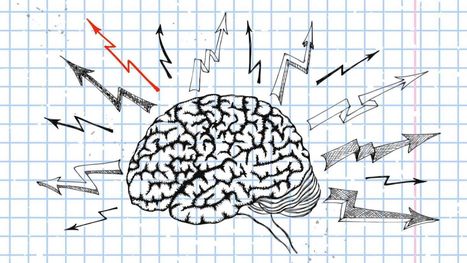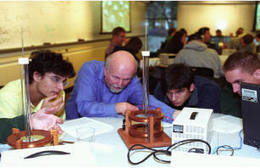Learn how to generate long-term transformation by starting with mental models.
Get Started for FREE
Sign up with Facebook Sign up with X
I don't have a Facebook or a X account
 Your new post is loading... Your new post is loading...
 Your new post is loading... Your new post is loading...

Gary J. Hubbell's curator insight,
February 20, 2020 11:26 AM
Part of my learning practice is purposefully circling back 5-10 years to see what thinking was being lifted up and considering the extent to which it may still have value today. Such is the case with this excellent article, published in Foundation Review. Because much of my work in philanthropy has historically been with organizations involved in fund raising rather than fund granting, I found much in this article that resonates with me and could be valuable to those on that side of the exchange.
I'll just lift up three points that struck me.
1. The authors point to University of Michigan (Go Blue!!) research on core elements common to complex adaptive systems. They point to the research findings that "The more often individual agents interact, the faster the whole system adapts." I think this is a strong rationale for what a couple of my mentors call "campaigns of one" and, in general, most gifts of significance programs. Whereas so much development work (un)consciously involves "batching" actions taken with large groups of benefactors, the ability to get and stay in close conversation with an emerging major donor (i.e., "individual agents interacting") greatly increases and expands the shared exploration of possibilities and impact.
2. The authors suggest that by expanding "agency" (the self-perceived ability and authority to act), the speed of adaptation increases. When I work with clients doing philanthropy program planning I like to encourage a "whole stakeholder system" of involvement for this very reason. Highly interactive planning summits--laced with questions that illuminate the core conditions of past success--are great ways of building agency and ownership among the same folks you'd like to financially support the resulting initiatives.
3. The third observation the authors make is that we tend to conflate the "what" and the "how," often from our unconscious hold on power dynamics (aka, control). Greater attention (and co-creation) of the "why" and the "what" yields a far elevated scaffolding for most gift discussions. The "how" can be important, but not if it becomes the first or dominant point of discussion early on. Let it evolve appropriately. Then, allow many hands to hold the more tactical "how." Use the discussion of the "how" to test commitment around the "what" and the "why."

Lon Woodbury's curator insight,
March 28, 2016 6:15 AM
Expand these academic insights into learning about life, and they seem to still apply. -Lon |

Dr. Theresa Kauffman's curator insight,
April 2, 2017 10:28 PM
Metacognition is so very important to improved learning and achievement. Check this article out!

Dr. Theresa Kauffman's curator insight,
April 18, 2017 12:13 PM
We allow extra time each period so teachers can talk about thinking process in their content area and students can think about thinking. It can improve the application of what they are studying, which provides deeper learning.

Madame Tournesol's curator insight,
September 6, 2017 10:38 PM
Metacognition - the key to everything.
|
























